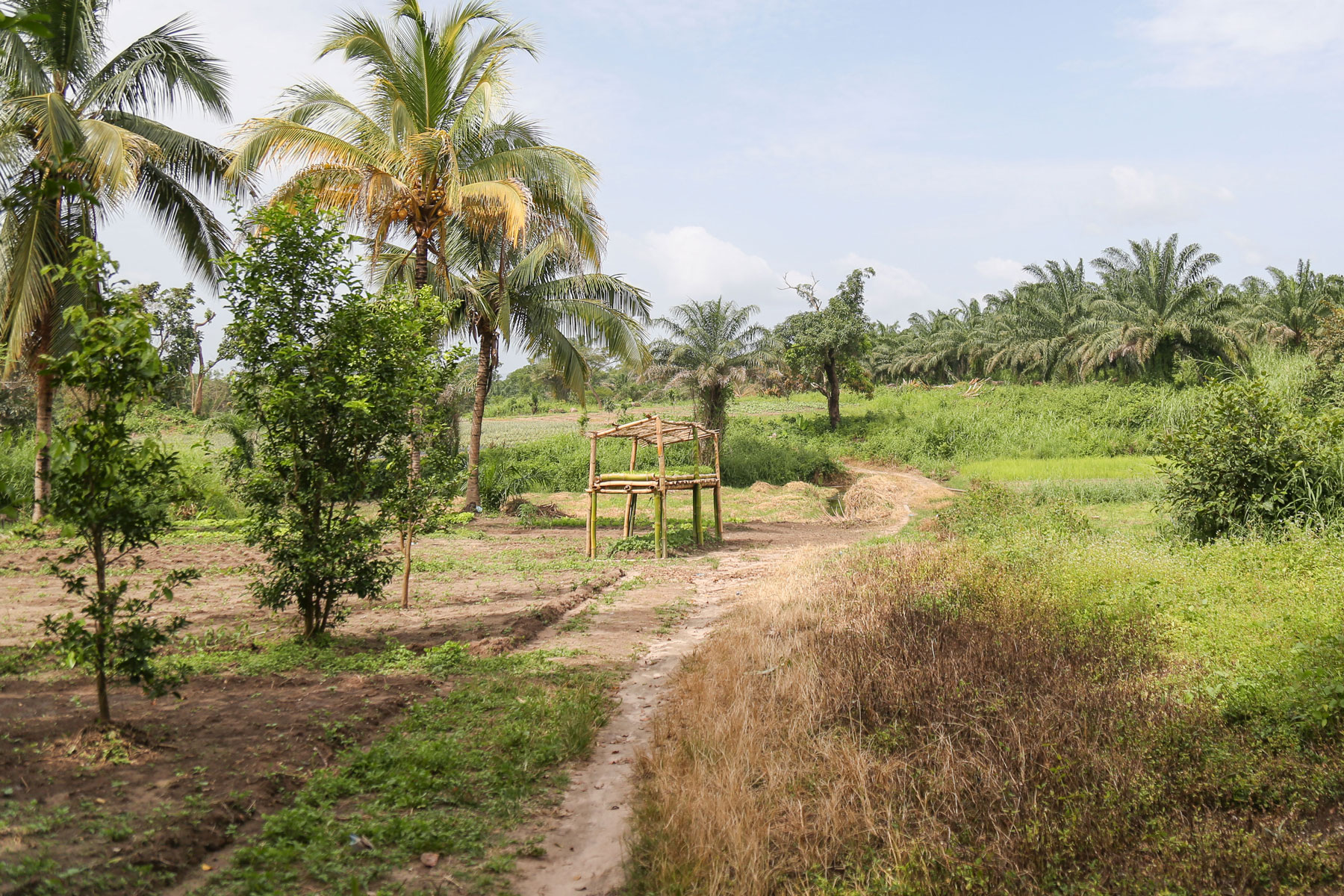
Volunteer Post
Climate smart agriculture education and training in Guinea
This article is a contribution to a four-week blog series celebrating 30 years of USAID’s John Ogonowski and Doug Bereuter Farmer-to-Farmer (F2F) Program.
Since 2013, the USAID Farmer-to-Farmer (F2F) program and associated USAID/Guinea Agriculture Education and Market Improvement Program (AEMIP) have supported L’Institut Superieur Agronomique et Vétérinaire de Faranah (ISAV/F) – Guinea’s only agricultural university — as a provider of research and education to help solve the country’s food security, ag-development, and climate change challenges. As a key step in this process, AEMIP conducted a baseline study for a Global Climate Change Integration Pilot in 2014. During the study, nationwide data was collected to assess the context in Guinea for building the capacity of ISAV/F and other agriculture education and training (AET) institutions to implement climate change adaptation programs and initiatives.
AEMIP and F2F are now addressing the recommendations provided in the baseline study to support ISAV/F and AET staff to develop and disseminate climate smart agricultural (CSA) techniques to increase farming revenue and food security in Guinea. AEMIP and F2F have also created a network of Guinean AET institutions to open a forum for discussion and development of CSA techniques and strategies. F2F and AEMIP volunteers have supported the efforts by conducting assessments and providing technical training to ISAV/F staff and organizational development capacity building support to the broader AET network.
AEMIP supports research teams comprised of ISAV/F faculty and students who engage local authorities, community members, and ag-extension agencies to conduct research on important topics related to climate change resilience and impacts of climate change on potato, rice, and honey production. The program also increases understanding about the causes of climate change and necessary remedies through climate change awareness grants to Guinean NGOs and by showcasing films at ISAV/F on climate change, global warming, climate change policy, and climate adaptation techniques appropriate for Guinea.
“Due to our collaboration with the AEMIP/F2F Program, ISAV/F has seen a change in our faculty’s mindset regarding climate change,” explains Professor Sara Bialo Diallo, the Director General of ISAV/F. “Faculty has become active in implementing projects that address climate change awareness and applied research on sustainable agriculture and climate smart agriculture techniques.”
F2F and AEMIP are currently seeking volunteer experts to assist with an agro-ecological climate change adaptation report; train AET network members to prepare funding requests for private donors; advise on research grants; and assist ISAV/F with public outreach. Volunteer opportunities are posted at: www.winrock.org/opportunities
From November 16-December 11, F2F program partners are sharing their knowledge and experience providing technical assistance to farmers, farm groups, agribusinesses, service providers, and other agriculture sector institutions in developing and transitional countries. As aligned with Feed the Future, the U.S. Government’s global hunger and food security initiative, F2F works to support inclusive agriculture sector growth, facilitate private sector engagement in the agriculture sector, enhance development of local capacity and promote climate-smart development. Volunteer assignments address host-led priorities to expand economic growth that increases incomes and improves access to nutritious food. This blog series aims to capture and share this program experience.
Read more articles celebrating 30 years of F2F on Agrilinks
